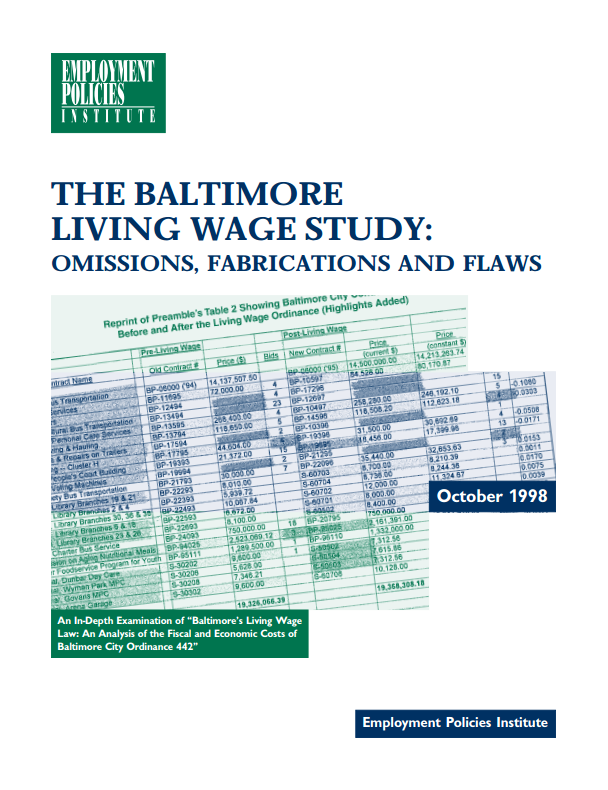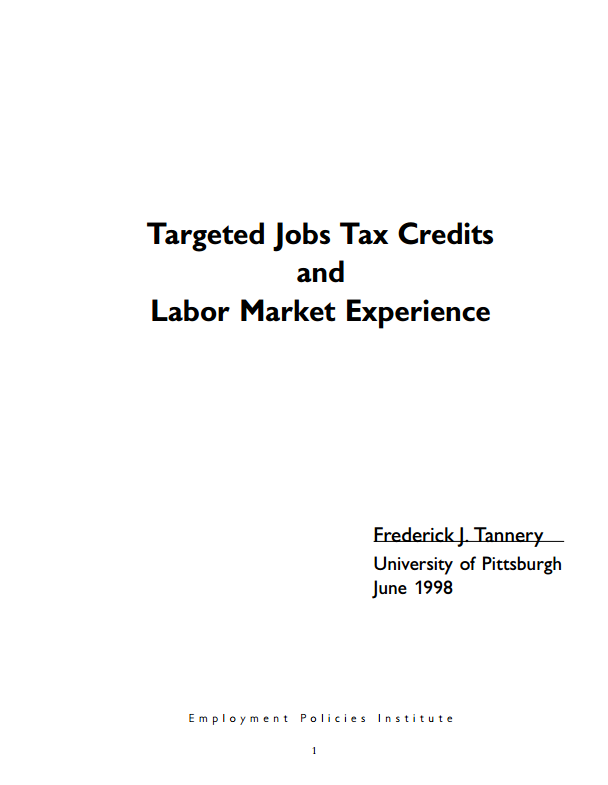Economic Analysis of a Living Wage Ordinance
July 1999
“If you get all the facts, your judgement can be right; if you don’t get all the facts, it can’t be right.”
— Bernard Baruch
Decisions made without proper information risk serious consequences. Nowhere is this more true than in public policy. Nonetheless, city councils across the country are now making decisions on one of the hottest public policy concepts in memory —…






